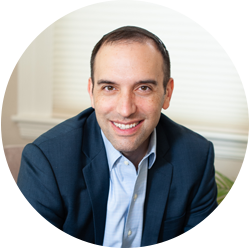Shalom Chaverim,
Yesterday was the 17th of the Jewish month of Tammuz, a minor fast day on the Jewish calendar that marks the beginning of a three-week period leading up to Tisha B’Av, the saddest day on the Jewish calendar.
The 17th of Tammuz commemorates the breaching of the walls of Jerusalem by the Roman armies before the ultimate destruction of the Second Temple in 70 CE. Imagine the emotions the Jews must have felt — the terror that walls had been breached and the anxiety of not knowing how or when things would end.
According to Jewish tradition, the 17th of Tammuz was also the day that Moses broke the tablets God gave him on Mount Sinai after he saw that the Israelites had created the golden calf. Imagine the sadness, disappointment, and anger Moses must have felt when he descended from the spiritual heights of receiving the Torah only to find the people for whom that Torah was given had already gone astray. His community was falling apart, and, in his absence, its leaders had failed to provide positive direction.
These three weeks, a period of mourning and introspection, begin with breakings, whether they are the walls of a holy city or the tablets of a holy text. The connection between the physical breakings of our history and the emotional–spiritual heartbreak that accompanies the human experience of those tragedies is profound.
I’m reminded of a powerful quote from Parker Palmer’s Healing the Heart of Democracy: The Courage To Create A Politics Worthy Of The Human Spirit:
If you hold your knowledge of self and world wholeheartedly, your heart will at times get broken by loss, failure, defeat, betrayal, or death. What happens next in you and the world around you depends on how your heart breaks. If it breaks apart into a thousand pieces, the result may be anger, depression, and disengagement. If it breaks open into greater capacity to hold the complexities and contradictions of human experience, the result may be new life.
The heart is what makes us human — and politics, which is the use of power to order our life together, is a profoundly human enterprise. Politics in the hands of those whose hearts have been broken open, not apart, helps us hold our differences creatively and use our power courageously for the sake of a more equitable, just and compassionate world.
The heart is what makes us human — and politics, which is the use of power to order our life together, is a profoundly human enterprise. Politics in the hands of those whose hearts have been broken open, not apart, helps us hold our differences creatively and use our power courageously for the sake of a more equitable, just and compassionate world.
Implicit in Palmer’s description of politics is this: how any of us uses our power — which all of us have, to some degree or another — is often a reflection of our inner lives.
Feeling pain, loss, and grief is part of what it means to be human. Yet, our willingness to go through those and other difficult emotions rather than go around them, or ignore them altogether, often determines the degree of light or shadow we will project into the world. We avoid our inner lives not only at our own peril, but at the peril of those around us, the people we influence, and the society and world for which we are responsible.
In “normal times,” the Jewish calendar creates the opportunity to tap into emotions and aspects of the human experience that might not be readily available to us. This year, so many of us are feeling broken by a global pandemic, by racial and economic injustice, and by the toxicity of our politics. These three weeks offer the opportunity to name and to ritualize what we are already feeling and experiencing.
Perhaps this is what motivated a number of our community’s rabbis, teachers, and many partner organizations to create yesterday’s beautiful memorial ceremony.
This gathering provided an opportunity for our community to collectively mourn the lives lost to COVID-19. While Jewish tradition offers so many tools for comfort and grieving, many of those tools are not available to us with social distancing. I am so grateful for this creative, pastoral response that filled a need many of us didn’t even realize we had.
As Rabbi Suzanne Offit said as she opened the ceremony, “Today we come together in our shared brokenness… for, in the words of the Kotzker Rebbe, ‘There is nothing more whole than a broken heart.’”
May we have the courage and collective strength to let our hearts break open rather than apart, bringing ourselves into closer and deeper relationship with the world, with one another, and with ourselves.
Shabbat shalom,
Rabbi Marc Baker

About the Author
CJP President and CEO Rabbi Marc Baker is an educator, writer, and leadership mentor who is devoting his life to Jewish learning and building Jewish communities.
